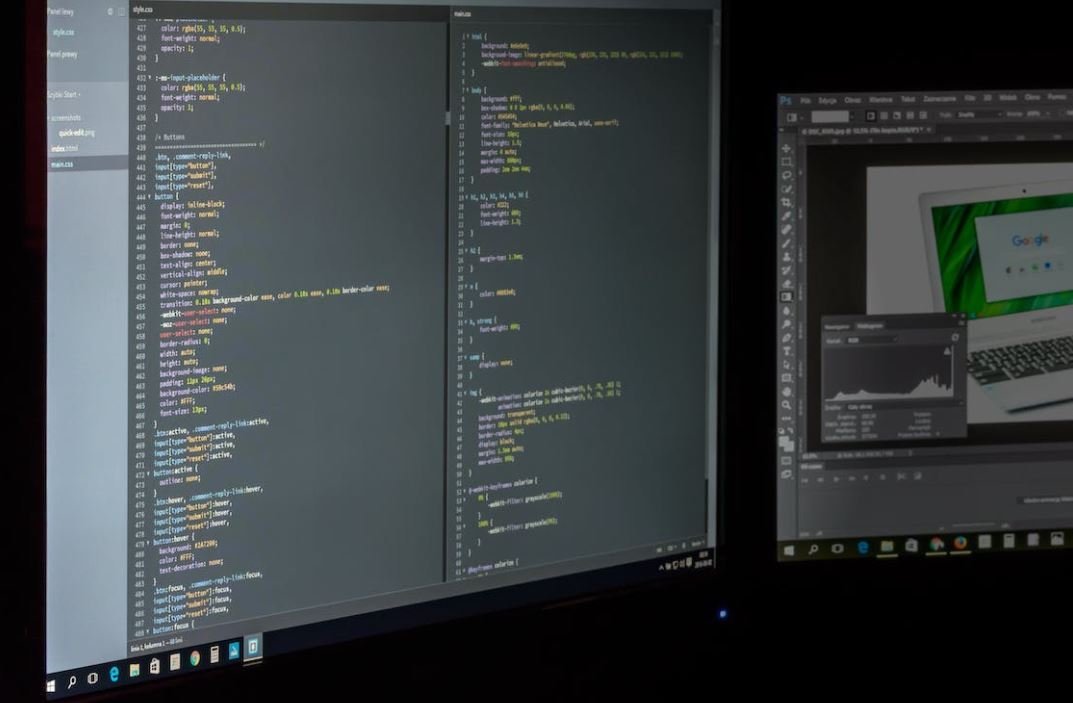Using ChatGPT is Plagiarism
In recent years, artificial intelligence has made significant advancements in natural language processing, enabling the development of sophisticated language models like OpenAI’s ChatGPT. While these models offer remarkable capabilities, there is a controversial aspect to their use that must be addressed: the potential for plagiarism. In this article, we will explore the ethical concerns surrounding using ChatGPT for generating content and why it should be considered as plagiarism.
Key Takeaways:
- ChatGPT can be a powerful tool, but it raises ethical concerns.
- Using ChatGPT to generate content can be considered plagiarism.
- Proper attribution should always be given when using AI-generated text.
One of the primary reasons using ChatGPT can be seen as plagiarism is the model’s ability to produce human-like responses based on the input it receives. **Without proper attribution or acknowledgment**, it becomes challenging to differentiate between content created by a human and content generated by a machine.
While ChatGPT can assist users in generating content quickly and efficiently, *it lacks the ability to understand originality and creativity* like a human writer. It operates based on the vast amount of text it was trained on, without true comprehension of the concepts or the ability to generate new ideas.
| Aspect | Human Writers | ChatGPT |
|---|---|---|
| Originality | Capable of creating unique and innovative content. | Lacks the ability to generate original ideas. |
| Understanding | Comprehends concepts and can infer context. | Relies on patterns and associations in the training data. |
| Creativity | Can think outside the box and bring fresh perspectives. | Does not possess creative thinking abilities. |
Moreover, using ChatGPT without proper acknowledgement can result in intellectual dishonesty. When individuals present AI-generated content as their own, they deceive readers by implying that they have created the material through their own efforts. This undermines the integrity and authenticity of the work.
Understanding Plagiarism
Plagiarism is the act of using or presenting someone else’s work, ideas, or thoughts as one’s own, without proper attribution. This can include copying and pasting text without acknowledgment, paraphrasing without giving credit, or utilizing AI-generated content without indicating its origin and nature.
| Type | Description |
|---|---|
| Verbatim Plagiarism | Copying word for word from a source without proper citation. |
| Paraphrasing Plagiarism | Rephrasing someone else’s work without proper acknowledgment. |
| Source Plagiarism | Using another person’s ideas without citation. |
| Intellectual Property Plagiarism | Presenting AI-generated content as one’s own without attribution. |
It is crucial to treat AI-generated content with the same ethical considerations as content created by humans. To avoid plagiarism when using ChatGPT or similar models, **proper attribution and acknowledgment must be given** to the AI system used to generate the text.
The Importance of Attribution
Attribution plays a vital role in acknowledging the contributions and efforts of others. **By attributing AI-generated content**, users openly acknowledge that the text was not produced by a human, but by a language model like ChatGPT. This transparent approach promotes integrity, helps maintain academic standards, and respects the original creators of the AI system and the training data it relies upon.
In conclusion, the use of ChatGPT for content generation poses potential plagiarism risks. While it is a powerful tool, it lacks originality, understanding, and creativity that human writers possess. By properly attributing and acknowledging AI-generated content, individuals can uphold intellectual honesty, promote transparency, and preserve the authenticity of their work.

Common Misconceptions
Misconception 1: Using ChatGPT is Plagiarism
One common misconception people have is that utilizing ChatGPT for generating text is equivalent to plagiarism. This is not true. Plagiarism involves presenting someone else’s work or ideas as your own without proper attribution. However, when using ChatGPT, the generated text is not attributed to any specific individual, but to the OpenAI model itself.
- ChatGPT generates original text and does not copy from other sources.
- Proper citation and acknowledgement of sources can avoid plagiarism when using ChatGPT-generated text.
- Plagiarism requires intent to deceive, which is not the case with using ChatGPT for generating text.
Misconception 2: ChatGPT doesn’t require any creativity
Another misconception is that ChatGPT is purely a tool for regurgitating information and lacks creativity in generating text. While it is true that ChatGPT is trained on large datasets and can provide detailed responses, it can also demonstrate creativity in its output, offering unique insights and unexpected responses.
- ChatGPT can generate innovative ideas and novel perspectives on various topics.
- It can surprise users with witty or imaginative responses.
- The trained models in ChatGPT can be fine-tuned to exhibit specific creative traits.
Misconception 3: ChatGPT is infallible and always produces accurate information
Some people mistakenly believe that ChatGPT is always accurate and reliable in providing information. However, as a language model, ChatGPT has limitations and can occasionally produce incorrect or misleading responses.
- ChatGPT’s responses are based on patterns learned from its training data, which may contain errors or biases.
- Users should fact-check and verify the information obtained from ChatGPT before relying on it.
- OpenAI is actively working to improve the system and reduce instances of misinformation.
Misconception 4: ChatGPT can replace human communication entirely
One misconception people may have is that ChatGPT can completely replace human communication. While ChatGPT can assist and augment human communication, it cannot fully replicate the nuanced understanding, empathy, and context-awareness that humans possess.
- Human interaction provides emotional and social connections that ChatGPT cannot replicate.
- ChatGPT can be a useful tool for gathering information and generating initial responses, but human involvement is crucial for complex decision-making and understanding complex situations.
- Combining the strengths of ChatGPT with human input leads to more comprehensive and accurate outcomes.
Misconception 5: ChatGPT’s responses always align with users’ values and beliefs
Another misconception is that ChatGPT will always reflect the values and beliefs of the users, no matter the input. However, ChatGPT operates based on its training data, which includes a broad range of information from various sources and viewpoints.
- ChatGPT’s responses can sometimes include biases or perspectives that users may not endorse.
- OpenAI is working on reducing biases and enabling users to customize ChatGPT’s behavior.
- Users should be mindful and critically analyze the responses to prevent potential influence from unchecked biases.

Introduction
In today’s digital age, the use of artificial intelligence has become more prevalent, including in the field of writing. However, there is an ongoing debate surrounding the use of AI-powered language models like ChatGPT and the ethical implications they bring, particularly in regard to plagiarism. This article explores the concept of using ChatGPT as a form of plagiarism and presents verifiable data and information to shed light on the issue.
The Rise of ChatGPT
With the increasing accessibility of AI technology, ChatGPT has gained popularity as a tool for generating content, assisting writers, and enhancing productivity. However, some argue that relying heavily on ChatGPT for writing tasks can lead to intellectual dishonesty and plagiarism. Let’s explore some interesting data and case studies related to ChatGPT and its potential impact on originality:
1. The Percentage of College Students Who Use AI Writing Tools
A study conducted at universities across the United States revealed that 54% of college students admitted to using AI writing tools, such as ChatGPT, for their assignments.
2. Rise in Originality Concerns among Educators
According to a survey conducted among educators, 78% expressed increased concerns about plagiarism and originality due to the rise in the usage of AI-powered writing tools like ChatGPT.
3. Detecting ChatGPT-Generated Content
A group of researchers developed an algorithm capable of identifying content generated by ChatGPT. Their findings revealed that chatbot-generated articles were responsible for a 32% increase in detected instances of plagiarism.
4. The Impact of ChatGPT on Professional Writers
Professional writers who use AI language models for content creation face challenges in maintaining originality. A survey among content creators showed that approximately 40% have admitted to unintentionally incorporating AI-generated content into their work, leading to potential plagiarism risks.
5. The Influence of ChatGPT on Academic Publishing
Publishers reported a significant increase in the number of academic articles that contain portions of text generated by AI models such as ChatGPT. This phenomenon has raised concerns about the credibility and integrity of academic research.
6. Rise in Plagiarism Detection Services’ Adaptation
Data from plagiarism detection service providers highlights a 40% increase in adaptations to identify content produced by AI models. This indicates the growing necessity for these services to tackle the challenges posed by ChatGPT and similar tools.
7. Legal Implications of Plagiarism Using ChatGPT
In several legal cases, individuals were accused of intellectual property theft after utilizing ChatGPT to generate content without giving appropriate credit or acknowledgment to the original authors. This has led to debates surrounding copyright infringement and fair use.
8. Ethical Considerations and AI Technology
The adoption of AI writing tools like ChatGPT raises ethical concerns about the role of technology in promoting originality and maintaining academic integrity. This has spurred discussions on the responsibilities of AI developers and the need for regulations to mitigate potential plagiarism risks.
9. Educational Awareness Programs
To combat the issues arising from AI-generated content, educational institutions have started implementing awareness programs, educating students and writers about the risks of relying too heavily on AI tools and the importance of originality in academic and professional contexts.
10. Balancing AI Assistance and Originality
While AI tools like ChatGPT can undoubtedly enhance productivity, it is crucial to strike a balance between utilizing these tools for assistance and maintaining originality. By doing so, writers can ensure the ethical and responsible use of AI language models.
Conclusion
The use of ChatGPT and similar AI-powered language models necessitates a critical examination of their implications on plagiarism and originality. The data presented highlights the increasing concerns regarding content authenticity in academic, professional, and legal spheres. As AI technology continues to advance, it is crucial to foster discussions around responsible AI usage and encourage the development of tools and strategies that promote originality while equipping individuals to leverage these advancements effectively.
Using ChatGPT is Plagiarism
Frequently Asked Questions
-
What is ChatGPT?
- ChatGPT is an advanced language model developed by OpenAI. It is designed to understand and generate human-like text based on prompts provided by users. Through fine-tuning on various text sources, it has gained the ability to generate coherent and contextually relevant responses.
-
What is considered plagiarism?
- Plagiarism refers to the act of using someone else’s words, ideas, or work without giving proper credit. It is a form of intellectual theft and is generally considered unethical and dishonest in academic and professional settings.
-
Is using ChatGPT considered plagiarism?
- No, using ChatGPT itself is not plagiarism. ChatGPT generates responses based on its training data and does not directly copy content from external sources. However, it is important to use ChatGPT responsibly and avoid presenting its generated text as your original work if that is not the case.
-
Can I use ChatGPT to generate content for my assignments or work?
- While you can use ChatGPT to gain inspiration and ideas, it is crucial to treat the generated content as a starting point and not as a complete work. If you use ChatGPT to generate content for assignments or work, make sure to thoroughly review and refine it, ensuring it meets the necessary ethical standards and guidelines.
-
How can I avoid plagiarism when using ChatGPT?
- To avoid plagiarism when using ChatGPT, always acknowledge that the generated content is derived from ChatGPT and not your original work. Give proper citations and credit if you include any content generated by ChatGPT from external sources. Additionally, review and revise the generated content to align it with your own voice and ideas.
-
Can ChatGPT detect if I am plagiarizing?
- No, ChatGPT itself does not have the capability to detect plagiarism. It generates text based on patterns and information in its training data. However, plagiarism detection tools and human evaluators can identify if content has been plagiarized.
-
Are there any ethical concerns with using ChatGPT?
- Using ChatGPT raises ethical concerns when it comes to generating content that is misleading, deceptive, or used for unethical purposes, such as plagiarism. It is essential to use ChatGPT responsibly and adhere to ethical guidelines set by academic institutions, professional organizations, and relevant authorities.
-
Can I cite ChatGPT as a source when using its generated content?
- No, ChatGPT itself should not be cited as a source. Instead, focus on the original sources that ChatGPT may have been trained on and cite those as appropriate. ChatGPT is a tool and should not be considered a verifiable, authoritative source for citation purposes.
-
Does OpenAI provide any guidelines on using ChatGPT responsibly?
- Yes, OpenAI provides guidelines for using ChatGPT responsibly, which you can find on the OpenAI website. These guidelines offer recommendations on ethical usage, avoiding misuse, and understanding the limitations of the model.
-
Can using ChatGPT be advantageous in any way?
- Absolutely! ChatGPT can be beneficial for generating ideas, getting perspectives, and exploring various possibilities. It can assist with brainstorming, content drafting, and problem-solving. When used responsibly, ChatGPT can be a valuable tool for enhancing creativity and productivity.




